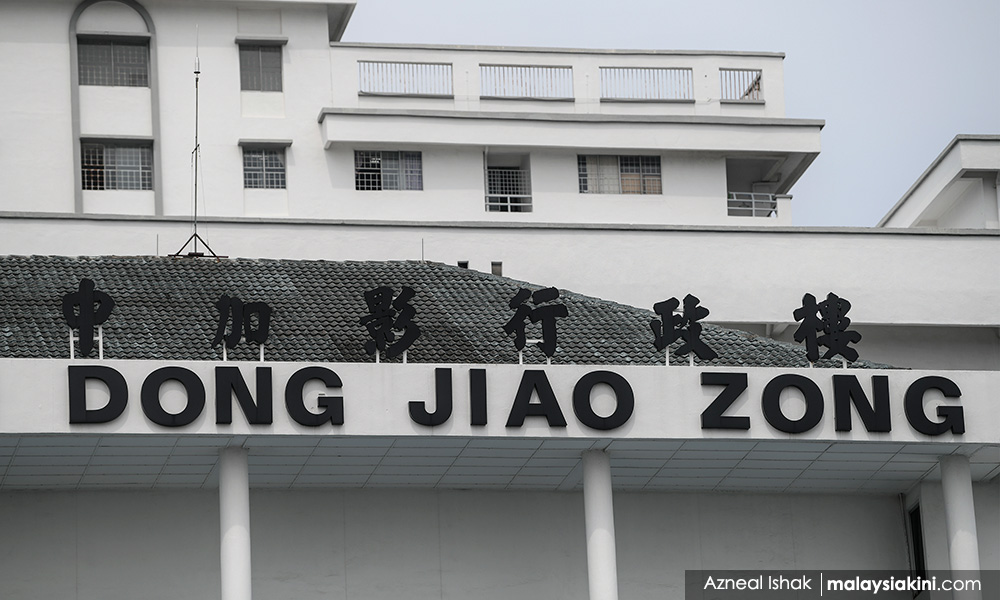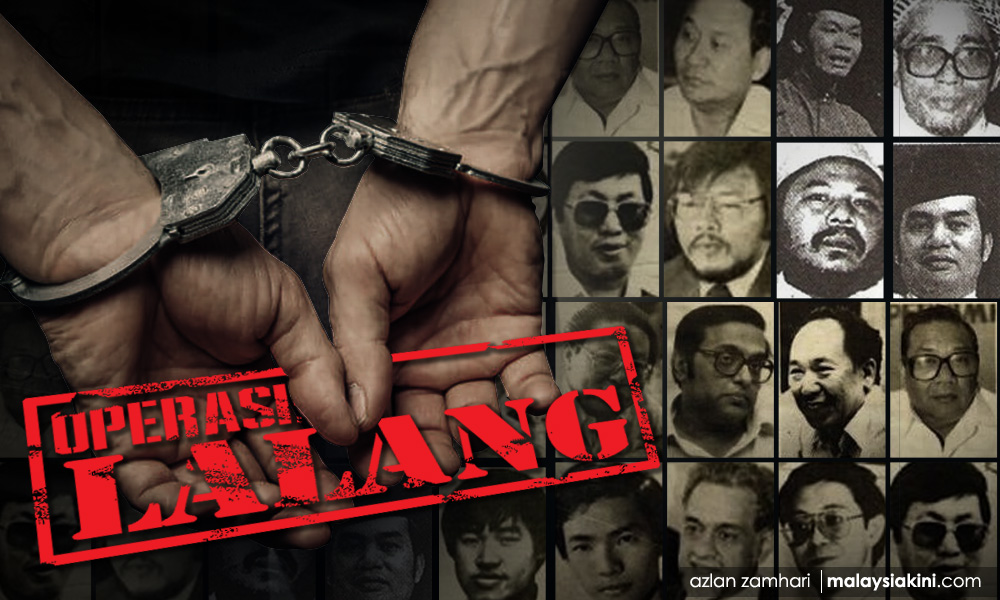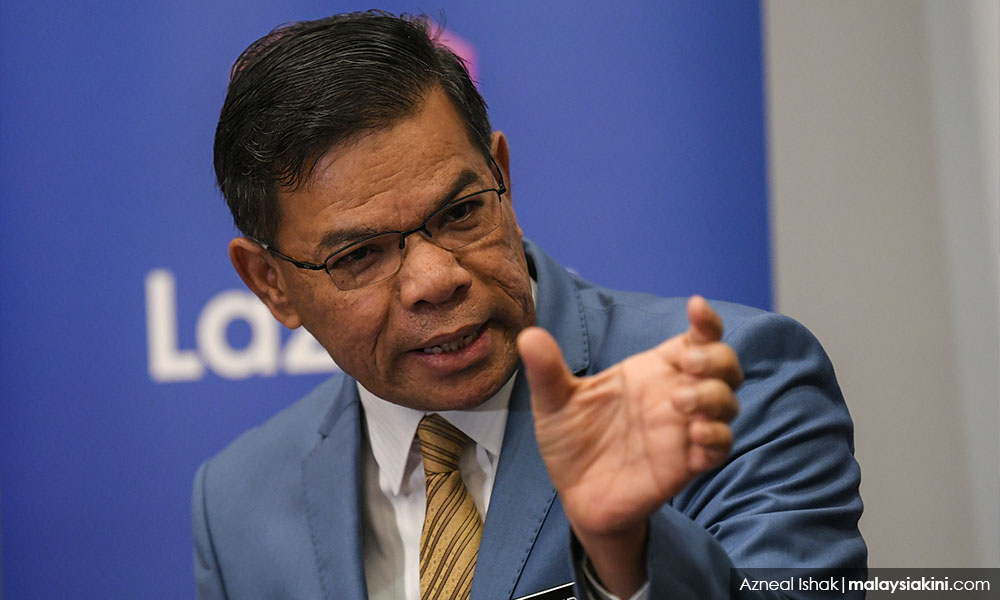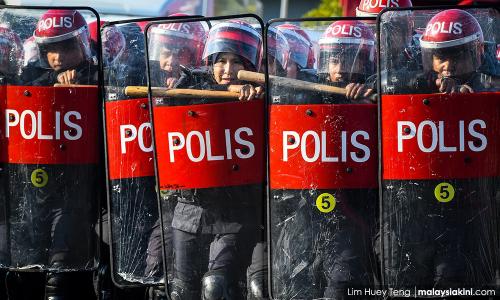Police 'impartiality' in halting Dong Zong congress needs to be questioned
COMMENT | The suppression of the congress by Chinese educationists over the khat issue by the police sadly followed the same strategy we have seen repeatedly over the last few decades.
When the prime minister announced recently that this privately convened congress would, in his logic, lead to opposing rallies by Malay groups, it was the cue for Malay supremacists to spring into action and threaten a demonstration against this congress.
The subsequent action by the police to stop the congress, of around 1,000 members, was a lame attempt to justify a patently undemocratic action to suppress the right of the Chinese educationists to assemble and to discuss the khat issue.
It exposed the lack of professionalism of the police. It showed that the police are incapable of judging the character and “risk” posed by assemblies in the country.
Otherwise, it exposes their plain lack of impartiality in guaranteeing the right to freedom of assembly and the right to freedom of expression under the constitution, giving further suspicion of a “Deep State” pushing a Malay agenda.

Limits to freedom of expression
This most recent issue is rather like the situation in October 1987 when the Education Ministry decided to appoint (linguistically) non-qualified senior officials in Chinese-medium primary schools.
This was met with consternation by the Chinese community who did not want the character and standards in these schools to be irreparably altered.
To call upon the parties to resolve the issue, the Chinese associations held a rally in the Thean Hou Temple.
This meeting of about 1,000 attendees was orderly and was attended by leaders of the DAP, MCA and Gerakan.
There were no complaints from the police regarding the peaceful conduct of the meeting nor were there any racially offensive speeches uttered by the speakers.
However, in mid-October 1987, Umno Youth staged a rally of several thousand at the Jalan Raja Muda Stadium in Kuala Lumpur.
At this rally, several leading Umno politicians, including a cabinet minister (who later became prime minister) made racially provocative statements. Banners bearing flagrantly racist and repulsive slogans such as, “Bathe this (keris) in Chinese blood”, among others, were blatantly displayed.
The police allowed such a rally to proceed and there were no arrests made on those who displayed such racially obnoxious banners.
As if this was not enough, Umno decided to call for a 500,000-strong rally in Kuala Lumpur at the end of October that year and the daily rabble-rousing raised the racial tension in the capital.
Somehow, the police must have been confident about being able to control such a huge rally because they did not oppose the organising of this rally.
This artificially charged atmosphere was the excuse for then Prime Minister Mahathir Mohamad to unleash Operation Lalang when more than a 100 innocent Malaysians (including the author), who had nothing to do with the Thean Hou Temple meeting, were detained under the ISA.

During the interminable interrogations by the Special Branch, their officers tried to justify our detention by saying that the Thean Hou Temple congress had offended the Malay supremacists in the country and raised the racial temperature in the country.
Were the police powerless in that situation?
My retort to the Special Branch interrogators was that surely the limits to the freedom of expression must lie not only where it trespasses upon racial sensitivities but also where the police feel confident of keeping law and order.
In the particular incident at the stadium, the flaunting of racially objectionable banners and speeches clearly showed that the police had no control unless they condoned it.
And if they could not manage a few thousand people there, how could they even contemplate allowing the proposed Umno anniversary rally of some 500,000 to take place?
By not disallowing this massive rally plan outright, the police had allowed the racial tension to build up and this provided the perfect justification for the ISA swoop on Mahathir’s key dissidents.
APCET was another instance of police partiality
In 1996, the police’s partiality was blatantly visible in their handling of the APCET conference at Asia Hotel in Kuala Lumpur.
On Nov 9, 1996, NGO Concerned Malaysian organised the Second Asia-Pacific Conference on East Timor in the Asia Hotel to seek a peaceful solution to the East Timor problem.
East Timor had been illegally occupied by Indonesian forces and brutally oppressed since 1975.
The BN government, under Mahathir and his deputy Anwar Ibrahim, were against the holding of this conference because they did not want to upset the Indonesian government.
We carried on regardless since we believed, as with other justice-loving people around the world, that the East Timorese deserved their right to self-determination.
Besides, this conference was held as a private event in a hotel, not a public space.
Soon after the conference began, a 600-strong mob led by the youth wings of the ruling BN coalition stormed the hotel and violently disrupted the conference, holding the local and foreign participants under a state of siege.
The police arrived late by a whole hour to stop the violence and threats by this mob. They prevented the conference participants from leaving the conference hall but after several hours arrested 59 participants “for not dispersing”.
They were locked up under Section 117 of the Criminal procedure Code. Twenty-eight were released the following day but the others were given two-day and four-day remand orders by the magistrate.
The detainees included NGO activists, students, local as well as foreign journalists.
There was connivance between the police and the mainly Umno mobsters since the Special Branch operatives were present very early that morning at the hotel.
The mobsters, numbering a few hundred, were allowed to storm and harass the conference speakers and organisers. The police themselves were uncharacteristically late by an hour to stop the mobsters.
To add salt to injury, we, the peace-seeking people, were thrown in jail while the mobsters who threatened the participants with violence were let off scot-free.
No rule of law while 'Deep State' dictates
The leaders of these mobsters who disrupted our peaceful conference included Saifuddin Nasution Ismail (below), the current minister of domestic trade and consumer affairs.

We do not expect the prime minister to provide us with an idea of how the so-called “Deep State” operates at that level.
However, I believe Saifuddin and the PM-indeterminate Anwar Ibrahim can illuminate the circumstances and manner by which the police and Special Branch disrupted the APCET conference and detained us.
The October 1987 affair and APCET 1996 are but two incidents where we can see the blatant partiality of the police.
The inconsistent behaviour of the police has to be read in their collusion with the so-called “Deep State” in Malaysia. This collusion has to go back to the May 13 incident and the hidden hands behind the New Economic Policy and the Malay Agenda.
As long as this “Deep State” exists to dictate what should be allowed and disallowed in this country, the rule of law will be deemed redundant and there will be no access to the fundamental liberties that are guaranteed in our constitution.
KUA KIA SOONG is Suaram adviser.
The views expressed here are those of the author/contributor and do not necessarily represent the views of Malaysiakini.
RM12.50 / month
- Unlimited access to award-winning journalism
- Comment and share your opinions on all our articles
- Gift interesting stories to your friends
- Tax deductable

